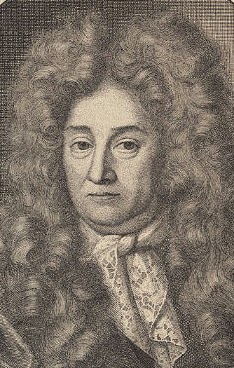What is quite interesting about the formation of the German nation is
the reason behind their formation. It is quite a unique one for the United
Kingdom and France have been in existence centuries while America formed about
a 100 years before the German nation and American gained their freedom by
defeating the British in the Revolutionary War. According to Hagan Schulze there appears to be
several reasons behind the creation and formation of the German nation. However,
not all the ideas led automatically to the creation to the German nation, but
more were stepping stones to the actual unification in 1871.
The Holy Roman Empire of Germany with all of its hundreds of territories.
One of the things
that I found interesting is how early on in German history that the German
citizens began to question the power of the Roman Empire. Hagan stated that “its [the Roman Empire] structure was regarded as old fashioned,
backward, and too complex for the ordinary person to grasp,” (Schulze 70). Why
even scholar Samuel von Pufendorf critized the Roman Empire as a monster in
1667 (Schulze 70). To both the people within the German Roman Empire and
outside, the empire’s structure appeared to be weak, especially after the
Thirty’s Years War. This war took a toll on Germany for much of the land was
destroyed, about a ¼ of the population was dead, and there was mass amount of
poverty. This caused Germany to be pushed back behind the other developed
nations in Europe for they were trying to rebuild themselves from the war while
the other nations continued to grow and improve themselves. Germany wanted some
way to develop them like the rest of the world powers, but it took them another
few centuries to do so.
Samuel von Pufendorf, one of the early scholars who critized the Holy Roman Empire and thought of a unified national identity.
Ideas of a nation
and German identity continued to grow amongst German citizens from the time
after the Thirty’s Years War up until Germany unified in 1871. For example, the
German nation grew mainly because of its fragmented identity and territories
within the empire (Schulze 89). The princes and monarchs always wanted to know
what was going on in every inch of their territories and were heavily active in
their citizen’s lives. With the monarchs
wanting to be so invested in their territories, the monarchs created administrators
to help tend to their position. From this growth of interest in their people,
monarchs created more educated jobs to help with their work which led to a
growth of the educated in Germany. These were the people in the 18th
century who really began to float around the idea of expressing an interest in
a national identity. However, only the educated were in on the national German
identity while the peasants were left with no understanding of the identity.
According to Friedrich Nicolai only 20,000 people compared to the millions in
Germany were participating in the national identity discussion (Schulze 90).
This is a small fraction of the whole empire at the time and hardly enough to
create any sort of impact to move towards a true German nation.
Despite these
early interests in a German nation, the true push towards the actual
unification in 1871 were a number of factors: “shock of defeat; a sense of
humiliation; the onerous financial burdens imposed on the defeated states; the
devastation caused by French enemies….the rise in the cost of living connected
with the system of French customs duties now imposed,” (Schulze 102). The
domination of Napolean and other wars along the French boarders with the German
Roman Empire made many citizens begin to question the ability of the empire and
drove for the push towards actually having a German nation. Another factor was
when the Roman Empire dissolved when Emperor Francis II abdicated during the
War of the Third Coalition. Without a ruler, Germany turned towards other ways
to still exist. Since many of the citizens within the empire shared a common
language and somewhat similar culture, unification appeared to work. So in 1871 Germany was unified into a nation.
However the road to becoming a powerful nation would be another feat for
Germany after their unification.
Emperor Francis II who abdicated his crown as the emperor of Holy Roman Empire.
Word count: 677


